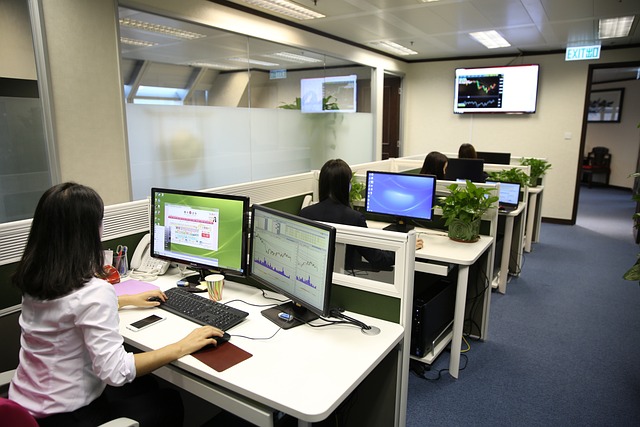How to Get Business Insurance for a Restaurant in the UK

Running a restaurant is an exciting venture, but it also comes with its fair share of risks. From food safety concerns to employee injuries and property damage, there are numerous potential liabilities that could impact your business. In the UK, having the right business insurance is essential to protect your restaurant from unforeseen events and ensure smooth operations. This article will guide you through the process of obtaining comprehensive business insurance tailored specifically for restaurants.
Why Do You Need Business Insurance for Your Restaurant?
Restaurants face unique challenges that require specialized coverage. Here’s why business insurance is crucial:
- Protection Against Liability Claims : Customers may file lawsuits for food poisoning, slips and falls, or allergic reactions.
- Property Damage : Fires, floods, or theft can cause significant damage to your premises and equipment.
- Employee Safety : Accidents involving staff members can lead to costly compensation claims.
- Business Interruption : Unexpected closures due to emergencies can result in lost income.
- Compliance Requirements : Certain types of insurance are legally required, such as employer’s liability insurance.
By investing in the right policies, you can safeguard your restaurant’s assets, reputation, and long-term viability.
Types of Business Insurance for Restaurants
To adequately cover your restaurant, consider combining several types of insurance into a comprehensive package. Below are the most common options:
1. Public Liability Insurance
- Covers claims made by customers or third parties who suffer injury or property damage while on your premises.
- Example: A customer trips over a loose floorboard and sues for medical expenses.
2. Employer’s Liability Insurance
- Legally required if you have employees.
- Protects against claims arising from work-related injuries or illnesses suffered by staff members.
- Example: A chef burns their hand while cooking and seeks compensation.
3. Product Liability Insurance
- Essential if you sell food or beverages.
- Covers claims related to harm caused by products you serve (e.g., food poisoning or allergic reactions).
- Example: A diner becomes ill after eating contaminated food at your restaurant.
4. Buildings and Contents Insurance
- Buildings insurance covers the structure of your restaurant, including walls, roof, and fixtures.
- Contents insurance protects furniture, kitchen equipment, stock, and other valuable items inside the premises.
- Example: A fire damages your dining area and destroys expensive appliances.
5. Business Interruption Insurance
- Compensates for lost revenue if your restaurant must close temporarily due to insured events like fires or floods.
- Example: A burst pipe forces you to shut down for repairs, resulting in reduced income.
6. Cyber Insurance
- Increasingly important as more restaurants adopt online booking systems and digital payment methods.
- Protects against data breaches, cyberattacks, and fraud.
- Example: Hackers steal customer credit card information stored in your system.
7. Stock Insurance
- Covers perishable goods spoiled due to power outages, refrigeration failures, or other covered incidents.
- Example: A freezer malfunction ruins £5,000 worth of frozen ingredients.
8. Glass Insurance
- Specifically covers broken windows, doors, or display cases.
- Useful for restaurants with large glass facades or outdoor seating areas.
9. Legal Expenses Insurance
- Helps cover legal costs associated with disputes, contract issues, or regulatory compliance matters.
- Example: Defending yourself against a wrongful dismissal claim brought by a former employee.
Steps to Get Business Insurance for Your Restaurant
1. Assess Your Risks
Before purchasing insurance, evaluate the specific risks your restaurant faces based on factors such as:
- Location: Urban vs. rural settings may influence crime rates and natural disaster risks.
- Size: Larger establishments typically require higher coverage limits.
- Menu: Offering exotic or high-risk foods (e.g., raw seafood) may increase liability exposure.
- Staffing: The number of employees affects the level of employer’s liability coverage needed.
2. Determine Coverage Needs
Decide which types of insurance are necessary for your operation. For example:
- A small café might prioritize public liability and contents insurance.
- A fine-dining restaurant may need additional coverage for high-value wine collections and advanced kitchen equipment.
3. Compare Quotes
Use online comparison tools or consult brokers specializing in hospitality insurance to compare quotes from multiple providers. Some reputable insurers offering restaurant-specific packages include:
- AXA
- Aviva
- Zurich
- Hiscox
- Allianz
4. Customize Your Policy
Work with your insurer to tailor the policy to your unique needs. For instance:
- Add optional extras like spoilage coverage or terrorism insurance.
- Adjust excess amounts to balance premiums with out-of-pocket costs.
5. Review Terms and Conditions
Carefully read the policy documents to understand:
- What is covered and excluded.
- Claim procedures and deadlines.
- Renewal terms and premium adjustments.
6. Bundle Policies
Many insurers offer discounted rates when you bundle multiple types of coverage into a single policy. For example, combining buildings, contents, and liability insurance can simplify management and reduce costs.
Tips for Saving Money on Restaurant Insurance
- Improve Security Measures : Installing CCTV cameras, alarms, and secure locks can lower premiums.
- Train Staff Regularly : Educating employees on health and safety protocols reduces the likelihood of accidents and claims.
- Maintain Equipment : Keeping kitchen appliances in good condition minimizes breakdowns and associated risks.
- Increase Excess : Opting for a higher voluntary excess can reduce monthly payments, provided you can afford it in case of a claim.
- Shop Around Annually : Don’t settle for automatic renewals—compare quotes each year to ensure you’re getting the best deal.
Common Challenges When Insuring a Restaurant
- High-Risk Locations : Restaurants in busy urban centers or flood-prone areas may face elevated premiums.
- Specialized Cuisine : Serving niche dishes or allergenic ingredients increases product liability risks.
- Seasonal Fluctuations : Businesses with peak seasons may struggle to find flexible policies that adapt to changing needs.
- Underinsurance : Failing to accurately estimate the value of your stock, equipment, or rebuild costs can leave you underprotected.




